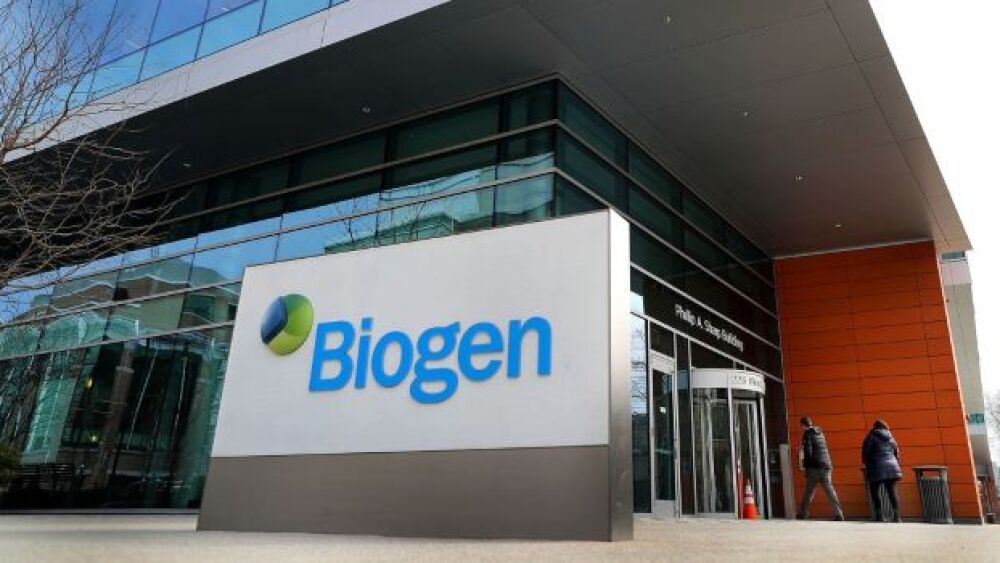Biogen and Eisai released an update on the Phase IV post-marketing confirmatory study and plan to submit the final protocol to the FDA in March 2022 and launch patient screening in May 2022.
John Tlumacki/The Boston Globe via Getty Images
When the U.S. Food and Drug Administration (FDA) approved Biogen’s Aduhelm (aducanumab) for Alzheimer’s disease in June 2021, it did so under an Accelerated Pathway that required a post-approval clinical trial to verify the clinical effectiveness of the drug. Today, Biogen and its development partner Eisai released an update on the Phase IV post-marketing confirmatory study.
The companies plan to submit the final protocol to the FDA in March 2022 and launch patient screening in May 2022. They also plan to enroll more than 1,300 early Alzheimer’s patients. The primary clinical endpoint will be at 18 months after initiation of treatment. Based on previous Phase III trials of the drug, they expect the study to wrap completely about four years after the trial. It will also include a long-term extension study for longer-term treatment data of up to 48 months.
“We are delivering on our commitment to accelerate the timelines with the goal to complete the confirmatory study well ahead of schedule,” said Priya Singhal, Head of Global Safety & Regulatory Sciences and interim Head of Research & Development at Biogen. “Together with EMBARK, Biogen’s redosing study, and the ICARE AD study, we aim to provide data from real-world practice and clinical trials to further inform patients and physician decisions about treatment.”
Going unsaid is that Biogen desperately needs to restore confidence in the drug after the debacle that has been its launch. In the third quarter of 2021, it had only brought in $300,000 compared to original average analyst estimates of $10.79 million. Aduhelm was controversial before the approval. The two companies had halted the development program after it failed clinical trials, then months later reported that further analysis of a high-dose cohort had demonstrated clinical efficacy.
Then, in November 2020, the Peripheral and Central Nervous System Drugs Advisory Committee voted against recommending it. One of the questions asked by the adcom was whether the FDA was considering an Accelerated Pathway. These pathways are designed to approve a drug on the basis of biomarker data rather than proof of clinical efficacy.
In the case of Aduhelm, it appeared to show that it cleared beta-amyloid in the brains of patients receiving it, but the improvement in cognition and memory wasn’t as convincing and was very complex. The FDA said it was not, but seven months later approved the drug under an Accelerated Pathway. Three members of the panel have since resigned in protest.
Aduhelm also has a price of about $56,000 per patient per year. That’s relatively low for biologics, and cheap compared to gene therapies, but the number of Alzheimer’s patients in the U.S. exceeds 3 million, and most are on Medicare. As of today, the Centers for Medicare and Medicaid Services (CMS) has not made a final recommendation on the drug, which isn’t expected until at least January 2022, with a final decision likely in March.
Insurers have been resistant to pay for the drug, questioning its efficacy and expressing concerns of potentially serious side effects. One patient is believed to have died from those side effects, including potential brain bleeds. In a recent survey of 25 large insurers by Bloomberg News, none described Aduhelm as “medically necessary,” arguing it was still an experiment, despite FDA approval. Others said they were still evaluating it. Many are waiting for Medicare to take the lead.
On top of all that, in July, Janet Woodcock, acting commissioner of the FDA, asked the independent Office of the Inspector General to investigate the interactions between the FDA and Biogen prior to the approval. There have been allegations that members of the FDA and Biogen met inappropriately at conferences ahead of the approval. The month before, the House Committee on Oversight and Reform announced plans to investigate the approval and pricing.
Marwan Sabbagh, Professor of Neurology, Alzheimer’s and Memory Disorders Division, Barrow Neurological institute, of today’s announcement, said, “I am very encouraged by this update and Biogen’s and Eisai’s goal to complete the trial in four years after its initiation, approximately half of the time that the FDA provided as part of the accelerated approval. This is a significant commitment from the companies. It takes time to execute a complex, global trial of this nature, so I am pleased to see the high level of priority being afforded to this study.”





